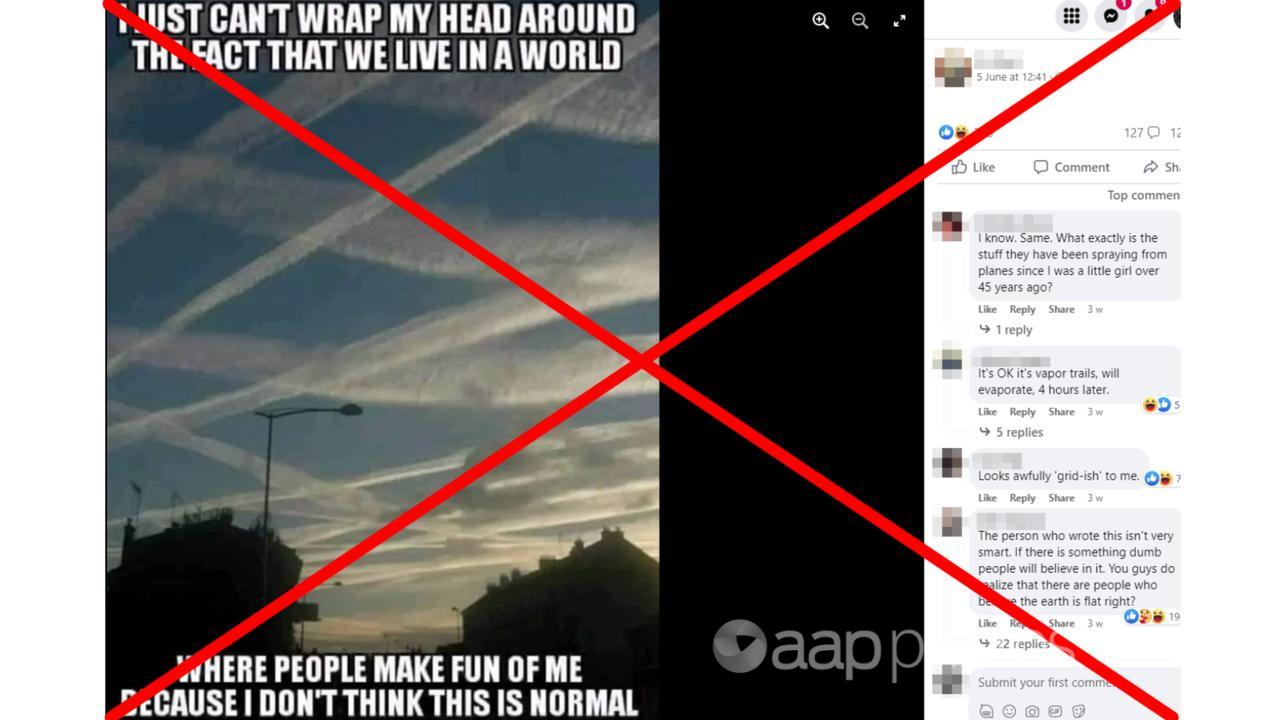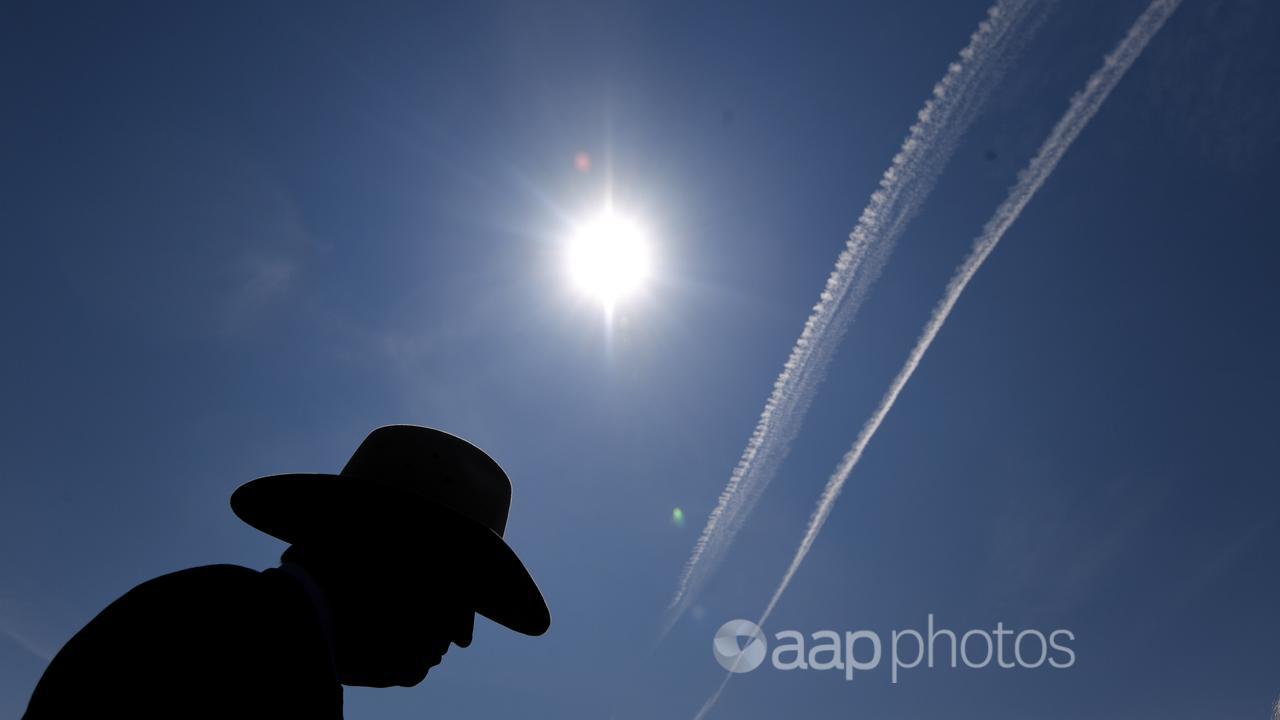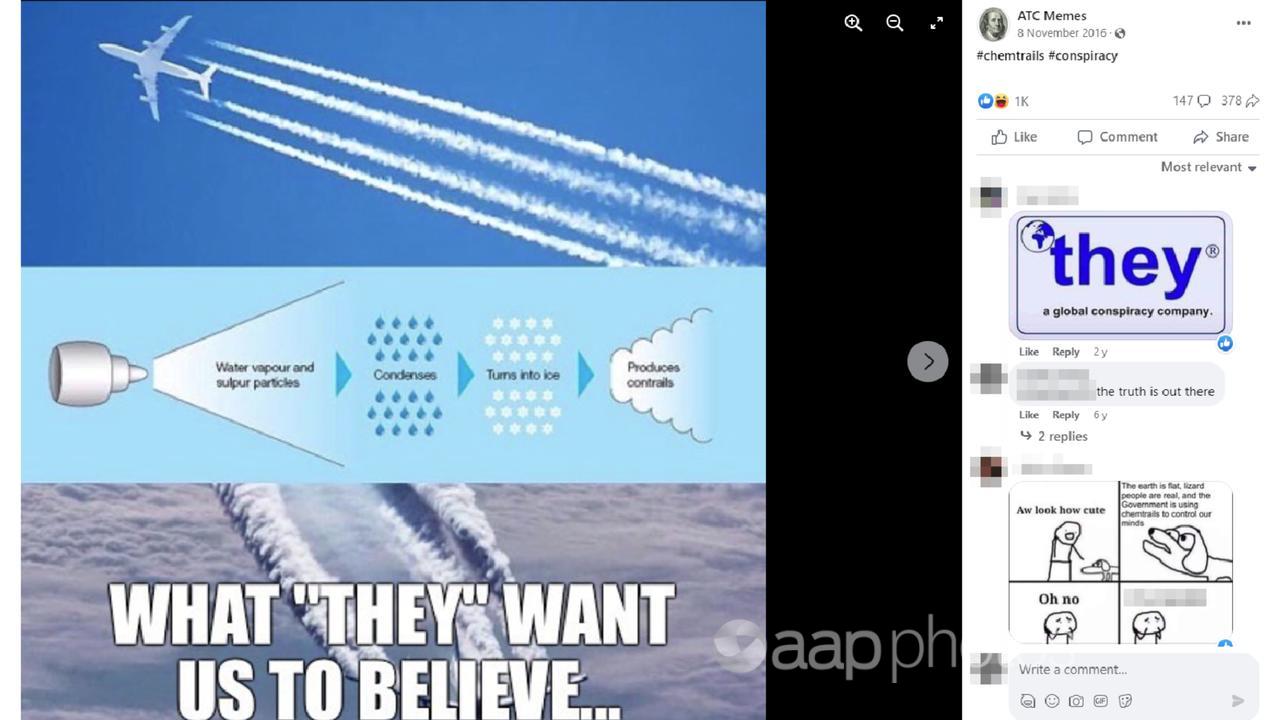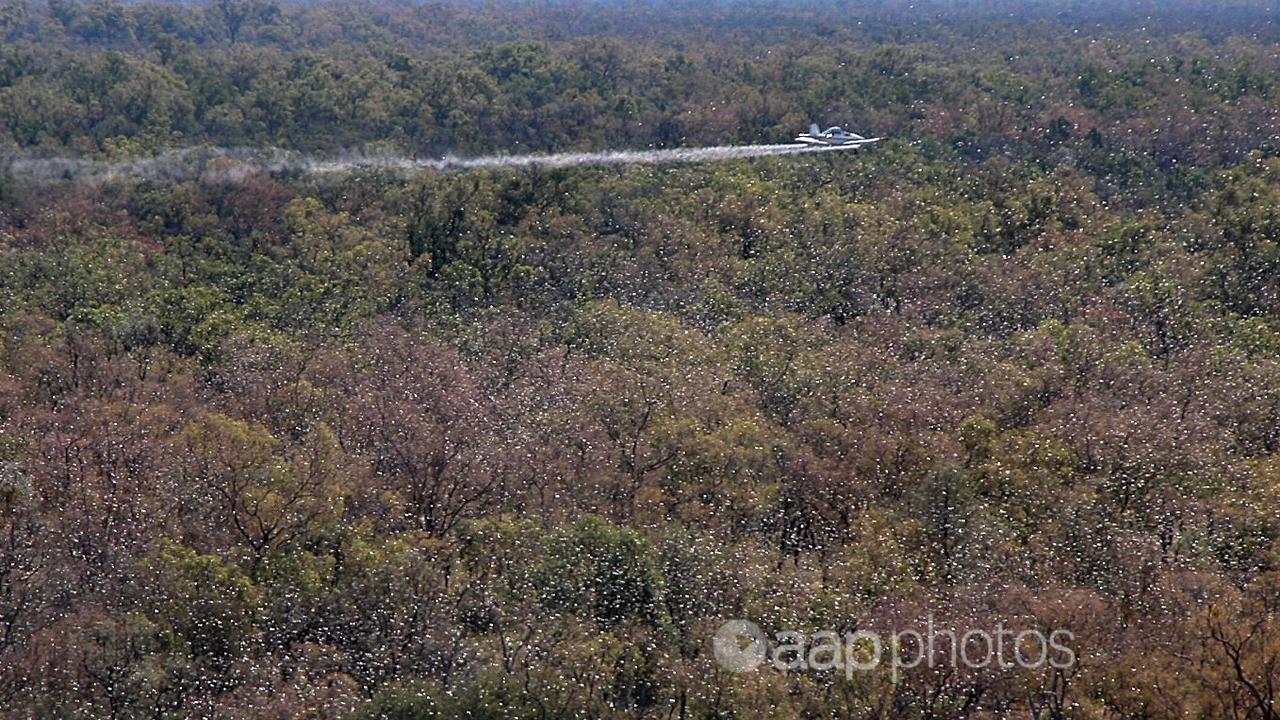Aircraft chemtrails conspiracy is long overdue for departure
Some social media users are claiming the long, white clouds left behind by aeroplanes are ‘chemtrails’ being sprayed into the air as part of a plot to poison humans or change the weather.
Those claims are false. The clouds are condensation trails, also called contrails, formed when water vapour condenses into ice particles around exhaust emitted from jet engines.
They pose no direct risk to human health but do contribute to climate change by preventing heat from leaving the earth.

The chemtrails conspiracy has been around since the 1990s but has found renewed life with the popularisation of social media.
It normally refers to beliefs governments or nefarious groups are secretly spraying toxic chemicals into the atmosphere.
While low-flying planes are used for crop dusting over agricultural land, the various versions of the conspiracy refer to commercial aircraft high in the sky.
Some claim chemtrails are being used to pacify or reduce populations.
Others assert they’re part of government attempts to modify the weather through ‘cloud seeding‘, also referred to as ‘geoengineering’, or by blocking out the sun.
The COVID pandemic even produced claims chemtrails are vaccines being sprayed to inoculate people.
Facebook contains hundreds of groups and pages dedicated to chemtrail theories.

Like many conspiracy theories, false beliefs are based on kernels of truth mixed with large chunks of misinformation.
Between 1940 and 1979, Britain’s Ministry of Defence secretly tested biological agents on parts of the UK during military germ warfare trials.
Similar tests took place in the US, including the release of bacteria in 1950 that sent 11 people to hospital.
Modern conspiracies rely on the idea chemicals are sprayed constantly across the globe in full view of people on the ground.
As this Harvard University research group points out, a program of this scale would require “tens of thousands” of workers to manufacture and disperse the alleged materials.
It’s also true cloud seeding has been used in attempts to boost winter snowfalls or alleviate droughts.
But the idea it can produce major changes in weather patterns is not backed by scientific evidence (see here, here and here).
The truth is a lot simpler.

Contrails are created when water vapour and small soot particles accumulate in jet aircraft exhaust at high altitudes.
The water condenses, turning into ice particles, with planes flying in cold and humid conditions leaving behind trails of condensation resembling long, thin clouds from each engine.
Associate Professor Robyn Schofield, an atmospheric chemist and aerosol scientist at the University of Melbourne, told AAP FactCheck most of the water vapour in contrails is already in the air.
As an aircraft moves through the air, the water condenses on nitrogen and sulphur oxides in the exhaust to form new particles, Dr Schofield says.
The visibility of contrails greatly depends on weather conditions, as explained in this 2021 article from David Simon Lee, a professor of atmospheric science and aviation at Manchester Metropolitan University.
They can last for hours in cold and humid air at high altitudes but quickly disappear in low-humidity conditions.
Andrew Carleton, a professor of physical geography and climatology at Penn State University, says the shape and visibility of contrails also depended on factors such as wind conditions and flight paths.
“Also, the greater the number of flight paths in a given region (such as the midwest USA, southeastern Australia), the greater the likelihood of multiple persisting contrails because of the additional particulates and water vapour emissions,” Prof Carleton told AAP FactCheck.

He said the idea contrails were used to intentionally spread chemicals from commercial aircraft was fanciful.
“As a possible way to try and achieve some kind of ‘mind control’, contrails would be a decidedly inefficient one, only occurring when and where atmospheric conditions are favourable and in association with commercial flight paths,” Prof Carleton said.
In 2016, US researchers tackled the chemtrail myth, surveying 77 atmospheric chemists and geochemists with expertise in condensation trails. All but one said they had seen no evidence of chemtrails.
The researchers said contrails could be lasting longer in the sky due to changes in aircraft technology, but “the evidence as evaluated here does not point to a secret atmospheric spraying program” (Page 9).
However, contrails have an indirect impact on the world’s climate because the clouds they form are good at trapping heat.
They are estimated to account for more than half the total climate impact of aircraft, although an IPCC report says contrails only make up a small proportion of overall greenhouse gas emissions (Page 7).
The Verdict
Claims the long, wispy clouds left behind by planes are toxic chemicals and biological agents known as “chemtrails” are false.
The clouds are non-toxic condensation trails created by ice particles formed when water vapour condenses in a jet engine exhaust.
False – The claim is inaccurate.
AAP FactCheck is an accredited member of the International Fact-Checking Network. To keep up with our latest fact checks, follow us on Facebook, Twitter and Instagram.
All information, text and images included on the AAP Websites is for personal use only and may not be re-written, copied, re-sold or re-distributed, framed, linked, shared onto social media or otherwise used whether for compensation of any kind or not, unless you have the prior written permission of AAP. For more information, please refer to our standard terms and conditions.
This article has been archived for your research. The original version from AAP FactCheck can be found here.


